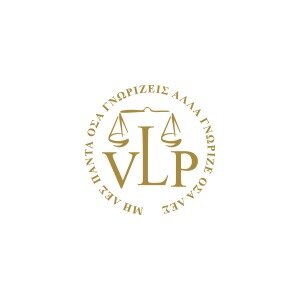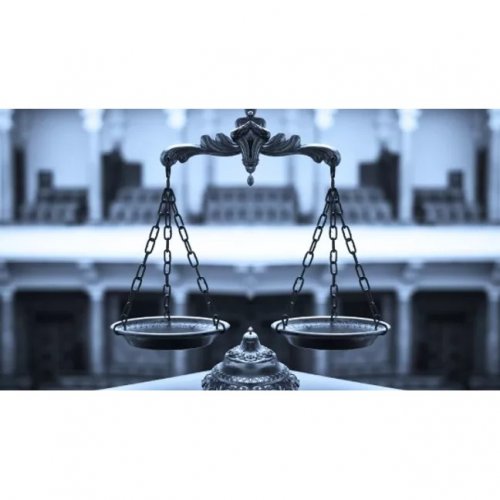Best Faith-Based Law Lawyers in Athens
Share your needs with us, get contacted by law firms.
Free. Takes 2 min.
List of the best lawyers in Athens, Greece
About Faith-Based Law in Athens, Greece
Faith-Based Law is a legal field that intersects with religious doctrines within the context of the secular legal system in Greece. With a majority Orthodox Christian population, Greece also recognizes the rights and practices of religious minorities, including Islam, Judaism, and Catholicism. Faith-Based Law in Athens involves interpretation and application of religious laws in personal status issues such as marriage, divorce, inheritance, and clergy-related matters, aligning them with the national legal framework. Legal practitioners in this field are often tasked with balancing religious doctrines and public laws to resolve disputes and cater to the needs of diverse religious communities.
Why You May Need a Lawyer
People may seek legal assistance in Faith-Based Law for various reasons, including:
- Marriage and Divorce: Navigating religious marriage and divorce procedures can be complex, especially when they intersect with civil laws.
- Inheritance Issues: Resolving disputes related to inheritance and wills that involve faith-based elements.
- Conversion Proceedings: Legal guidance on issues related to conversion to or from a faith.
- Religious Property Disputes: Addressing ownership and use disputes involving properties held by religious institutions.
- Clergy and Ethical Matters: Legal advice concerning clergy rights, duties, and ethical considerations under faith laws.
A lawyer specializing in Faith-Based Law can provide valuable insights, represent clients in mediation or court, and help navigate the unique intersections of civil and religious law.
Local Laws Overview
The legal landscape in Athens is heavily influenced by Greece's constitution, which upholds religious freedom and recognizes certain faith-based legal practices. Key aspects include:
- Orthodox Canon Law: Primarily affects issues related to the Greek Orthodox Church and its adherents.
- Civil Law: Provides a framework within which religious laws must be practiced, ensuring they do not contravene public policy.
- Sharia Law: Applicable in personal law matters for the Muslim minority in Thrace, though its application elsewhere, including Athens, is limited.
- Recognition of Religious Marriages and Divorces: Harmonization with civil legal requirements is essential for legal recognition.
- Religious Institution Regulations: Govern the establishment and operation of religious entities in line with public law.
Understanding these laws is critical for those engaged in faith-related legal issues, necessitating the consultation of legal experts familiar with both religious and civil stipulations.
Frequently Asked Questions
What is Faith-Based Law?
Faith-Based Law refers to legal practices that incorporate religious doctrines into civil law matters, affecting personal status issues such as marriage, divorce, and inheritance.
Is religious marriage recognized by Greek law?
Yes, religious marriages are recognized in Greece, but they must comply with civil legal requirements to be fully valid.
Can I write a will following my religious laws?
While drafting a will based on religious laws is possible, it must also comply with Greek civil law to ensure enforceability.
How are religious disputes resolved?
Religious disputes may be resolved through arbitration or mediation involving religious authorities, but civil courts may also become involved, especially if public law is impacted.
Can I change my religion legally in Greece?
Yes, Greece permits freedom of religion, and you can legally convert to another faith following established legal procedures.
What role do lawyers play in Faith-Based Law?
Lawyers offer legal advice, represent clients in negotiations or court proceedings, and help mediate issues that overlap between religious doctrines and civil requirements.
Are there specific courts for Faith-Based Law?
Generally, faith-based matters are handled within regular courts that take into account religious considerations, with specialized tribunals for certain religions, such as the Mufti courts for some Islamic issues.
How does Greek law address mixed-faith marriages?
Mixed-faith marriages are recognized provided they meet civil marriage requirements, though additional religious ceremonies may be required for religious recognition.
Can religious institutions own property in Greece?
Yes, religious institutions can own property, subject to compliance with public law regulations on real estate.
What happens if there is a conflict between my religious beliefs and Greek law?
In cases of conflict, civil law typically prevails, but legal advice and mediation may help align both religious and public interests.
Additional Resources
- Ministry of Education, Research and Religious Affairs: Offers guidance on religious freedoms and practices.
- Bar Association of Athens: Provides a directory of legal professionals specializing in Faith-Based Law.
- Center for Religious Pluralism in Greece: A resource for understanding religious diversity and associated legal challenges.
- The Greek Orthodox Church: Provides doctrinal resources and canonical guidelines.
Next Steps
If you need legal advice in Faith-Based Law, consider the following steps:
- Identify your specific legal need and gather relevant documentation.
- Consult with a lawyer specializing in Faith-Based Law to discuss your case.
- Verify the lawyer’s credentials and experience in dealing with faith-related legal issues.
- Consider mediation or arbitration as a first step in dispute resolution.
- Prepare for potential court proceedings if mediation does not resolve the issue.
It is important to take prompt action and seek specialized legal guidance to navigate the complexities of Faith-Based Law effectively.
Lawzana helps you find the best lawyers and law firms in Athens through a curated and pre-screened list of qualified legal professionals. Our platform offers rankings and detailed profiles of attorneys and law firms, allowing you to compare based on practice areas, including Faith-Based Law, experience, and client feedback.
Each profile includes a description of the firm's areas of practice, client reviews, team members and partners, year of establishment, spoken languages, office locations, contact information, social media presence, and any published articles or resources. Most firms on our platform speak English and are experienced in both local and international legal matters.
Get a quote from top-rated law firms in Athens, Greece — quickly, securely, and without unnecessary hassle.
Disclaimer:
The information provided on this page is for general informational purposes only and does not constitute legal advice. While we strive to ensure the accuracy and relevance of the content, legal information may change over time, and interpretations of the law can vary. You should always consult with a qualified legal professional for advice specific to your situation.
We disclaim all liability for actions taken or not taken based on the content of this page. If you believe any information is incorrect or outdated, please contact us, and we will review and update it where appropriate.
















